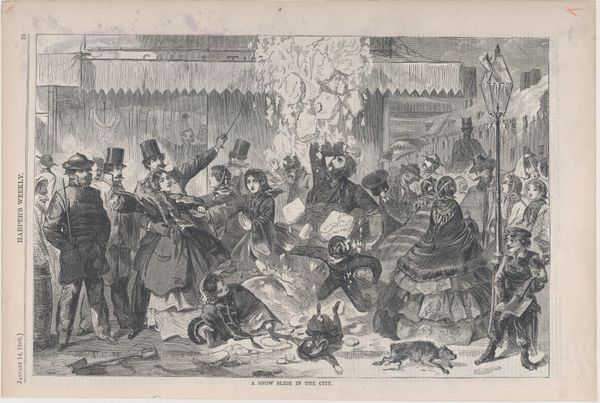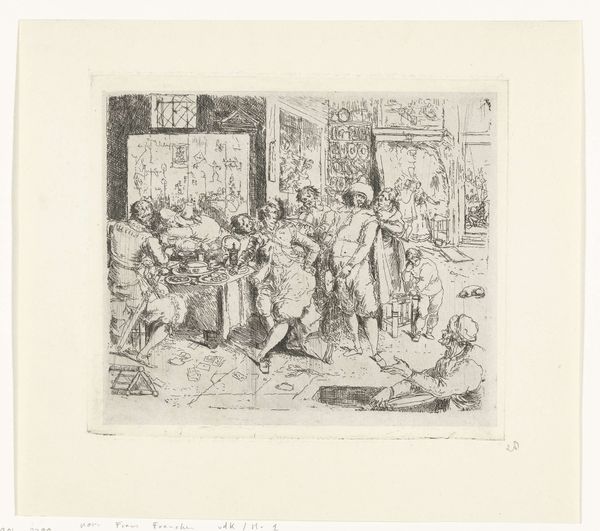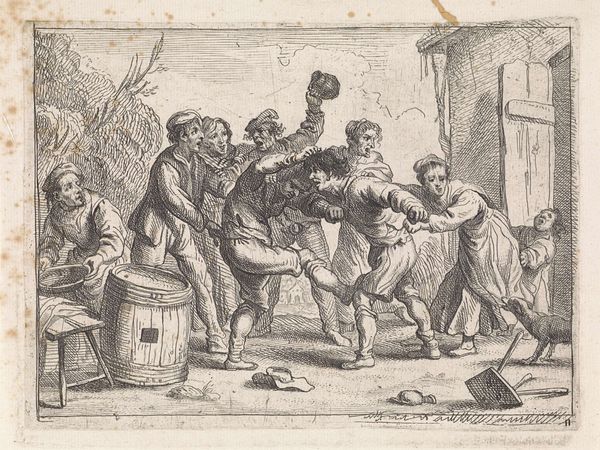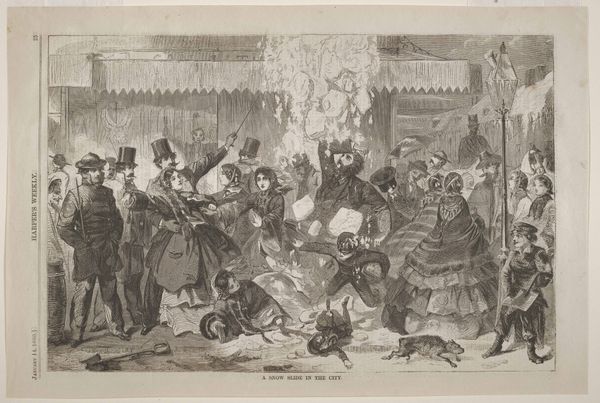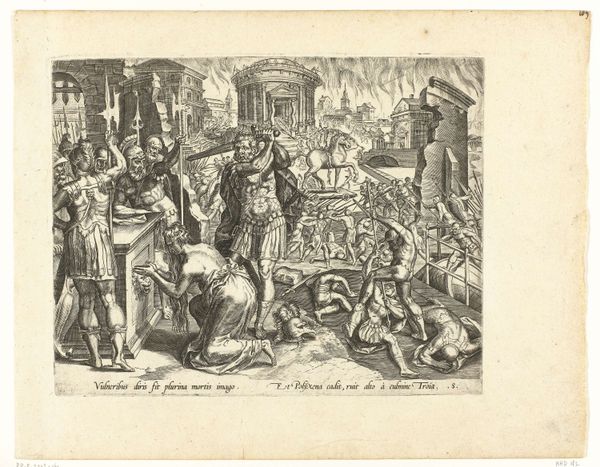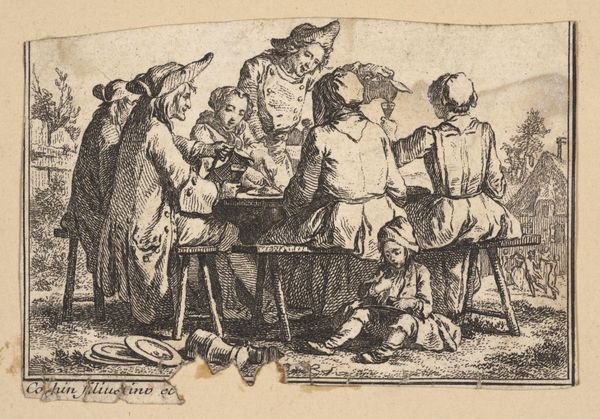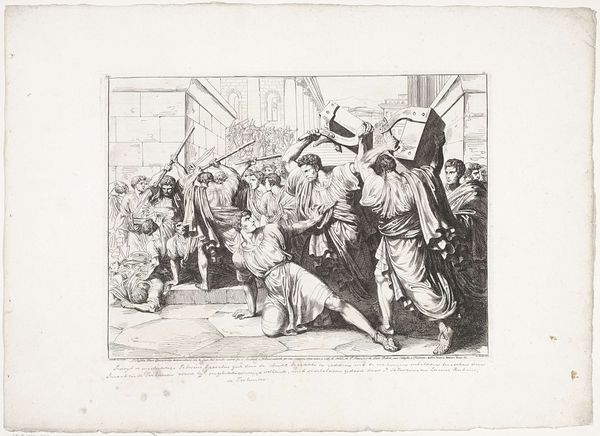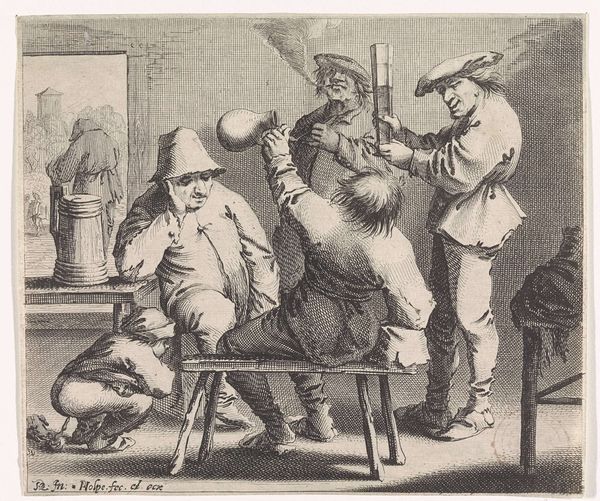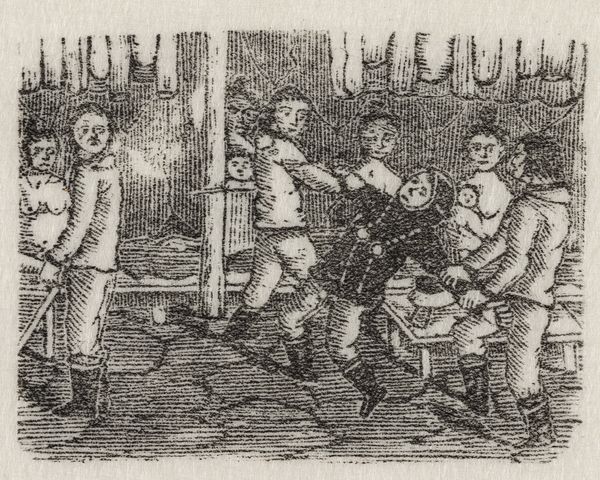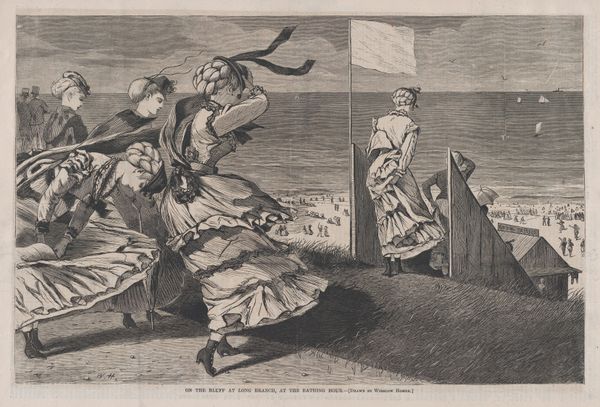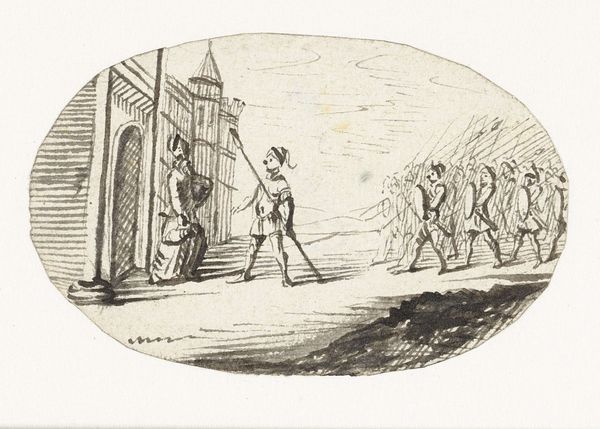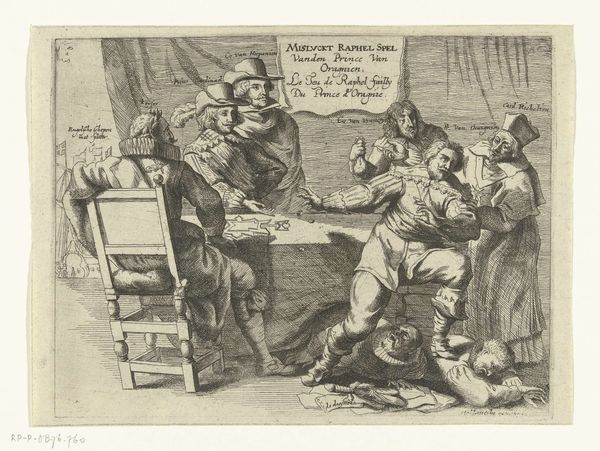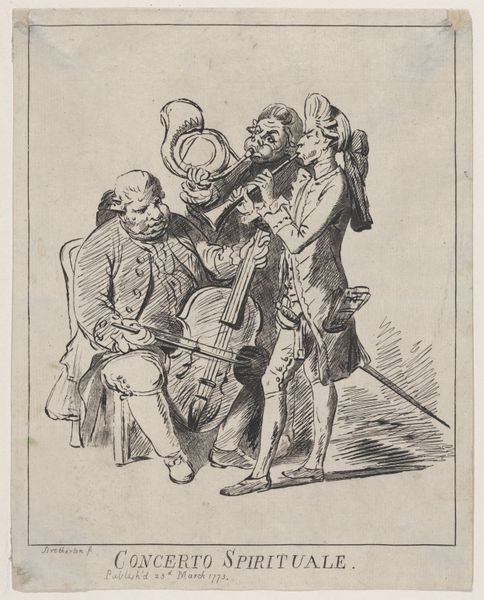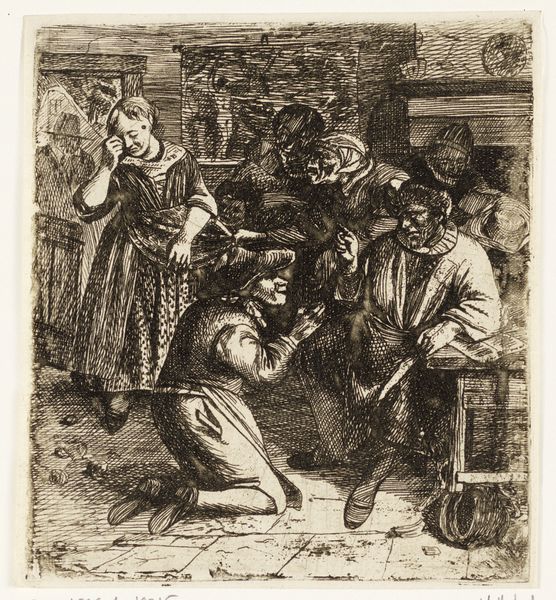
print, engraving
#
narrative-art
#
baroque
# print
#
figuration
#
line
#
history-painting
#
engraving
Dimensions: height 258 mm, width 348 mm
Copyright: Rijks Museum: Open Domain
This is an anonymous print from 1652, depicting Oliver Cromwell as the "Terrible Tail-Man." During the 17th century, political cartoons emerged as potent tools for shaping public opinion. In this image, Cromwell, the Lord Protector of England, is satirized amidst the tensions of the Anglo-Dutch War. The artist portrays Cromwell with a snake-like tail, a symbol of deceit and danger, reflecting the fear and animosity felt towards him by some Dutch citizens. The print captures the complex intersection of political power, national identity, and propaganda. Cromwell is positioned centrally, exuding an aura of authority while simultaneously being undermined by the monstrous tail that signifies his alleged treachery. Dutch figures are shown attempting to control the tail, symbolizing their struggle against English dominance. The scattering of coins around Cromwell suggests corruption. This print reveals how art can function as a form of resistance, offering a visual critique of those in power during times of conflict. It serves as a reminder of the emotional and ideological dimensions of political events, capturing the anxieties and aspirations of a society grappling with change and uncertainty.
Comments
No comments
Be the first to comment and join the conversation on the ultimate creative platform.
